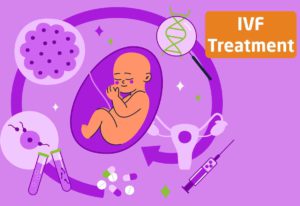There is a significant connection between your oral and general health. Just as vitamins and minerals work to fight infections, strengthen bones and restore our bodies to health, they also do their share in contributing to a healthy smile. When you eat nutrient-packed foods, your teeth get a chunk of the benefits as you chew. So, your choice of meals can go a long way in preserving your oral health.
How Do Vitamins and Minerals Affect Your Teeth?
The foods you eat can impact your oral health positively and otherwise. Sugary and starchy foods, including desserts, bread, and pasta, sponsor acid production in the mouth and weaken the enamel. When your body lacks the proper nutrients, it cannot combat bacteria, exposing you to cavities, sores, gum infections, and other oral problems.
It is essential to come up with a diet that features meals packed with nutrients because they help you maintain a nice set of healthy teeth and gums. However, overindulgence in these nutrients could also be a problem. If you are considering taking supplements, consult your dentist first.
Calcium
Calcium is a mineral that plays a crucial role in preserving healthy teeth and bones and blood clotting. It contributes to the teeth’ structure and function by fortifying the hard outer part of a tooth against cavities and erosion. About 99% of this abundant mineral in humans goes into sustaining bones and teeth.
We need more calcium as we grow older because we are more prone to tooth decay and bone loss. The average adult between the ages of 19 and 50 should consume about 1,000 mg of calcium every day, and the best way to get this mineral is to consume foods rich in it. These foods include milk, cheese, yogurt, tofu, and dark leafy greens.
Magnesium
Now, magnesium highlights the essence of calcium. Magnesium is an underrated and often neglected mineral. In addition to being vital for overall health, it also aids in preserving strong and healthy teeth. When a person lacks enough magnesium, they could suffer weak enamels and bone loss because a large percentage of this mineral found in the body is stored in the teeth and bones. Foods like pumpkin seeds, spinach, soybeans, cashews, and oats are sources of magnesium.
Vitamin D
Vitamin D is a fat-soluble vitamin you can obtain by eating and exposure to sunlight. This vitamin is important because it helps the body absorb calcium and phosphorus, minerals crucial to maintaining healthy teeth. Researchers have linked tooth decay and periodontitis to vitamin D deficiency. You can get this vitamin by spending time in the sunlight and eating foods such as salmon, canned tuna, trout, milk, and vitamin D fortified cereal.
Vitamin A
Vitamin A is a highly essential vitamin for maintaining oral and overall health. It cleanses the teeth, prevents dry mouth, and protects the gums and cheeks from infections by aiding the production of saliva and healthy mucus in the mouth. You can get this vitamin from consuming fish, egg yolks, sweet potatoes, liver, and orange-colored fruits.
Phosphorous
The body cannot utilize calcium with just vitamin D; it needs phosphorus. Phosphorus absorbs and collaborates with calcium to produce hydroxyapatite, a crucial element in the structure of the enamel and bones. This mineral is present in several foods, including beef, cheese, soybeans, and seafood like sardines.
Potassium
Besides multiplying the number of minerals in the bone, potassium also works with magnesium to regulate acid in the blood. This regulation is essential because a person with a high acidic level drains calcium from their teeth and bone. This mineral also effectively reduces the pain from hypersensitivity in the teeth. Foods such as bananas, tomatoes, potatoes, and avocados contain potassium.
Vitamin C
Vitamin C helps maintain gum tissues and blood vessels that keep your gums firm to hold your teeth and also reduces the growth of plaque-inducing bacteria. Deficiencies could result in inflammation and gum disease. Sources of vitamin C include citrus fruits, berries, broccoli, and potatoes.
Vitamin B Complex
This vitamin group consists of eight vitamins, and it helps maintain a healthy smile by inhibiting inflammation and irritation inside and around the mouth and gums. Vitamin B complex is also effective in preventing gum disease. You can find it in whole grains, beans, nuts, cereals, liver, vegetables, and yeast.
Conclusion
We must consciously try to preserve a healthy smile through our habits and diets every day. While curating a diet with meals with nutrients beneficial to oral health is necessary, you must not know that it is not enough. You need to practice good oral hygiene at home and also go for regular dental cleanings. Here, you will have a professional thoroughly clean your teeth by removing plaque and examining your teeth for any signs of an oral problem. When you do all of this diligently, a healthy smile is guaranteed.





Be First to Comment